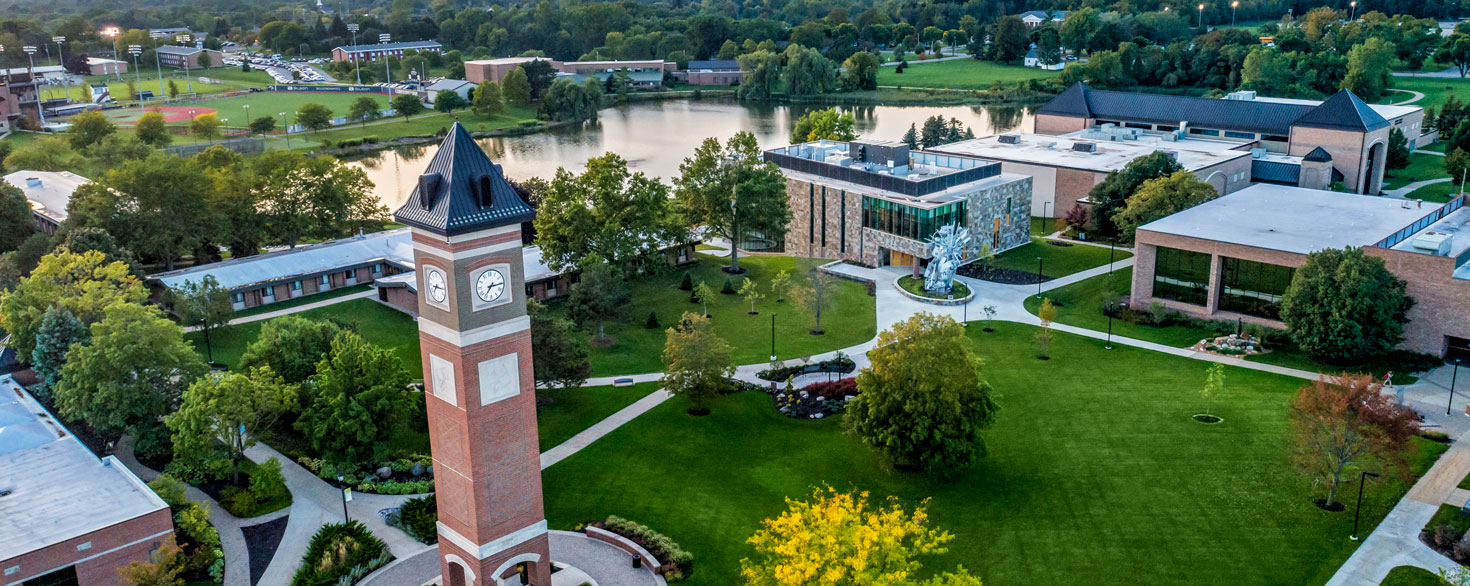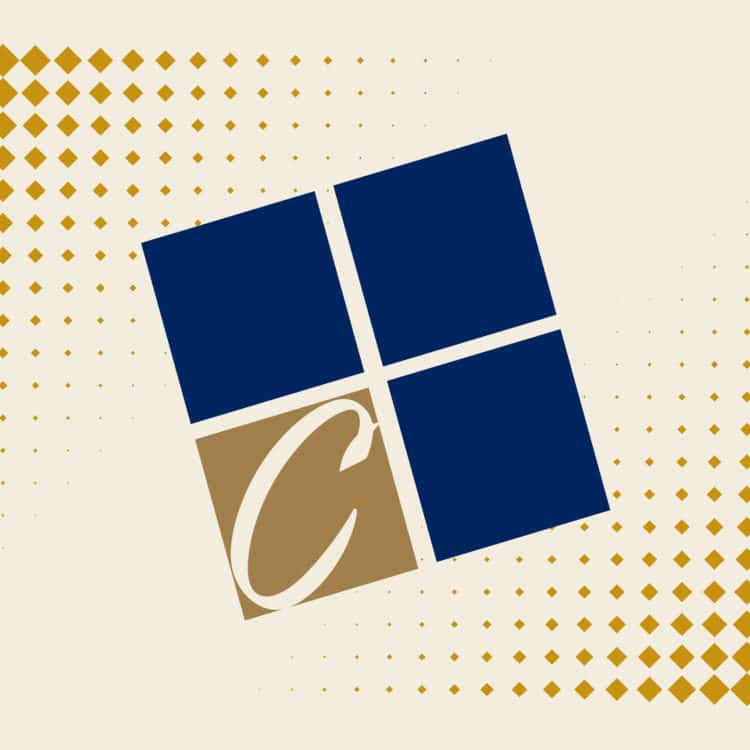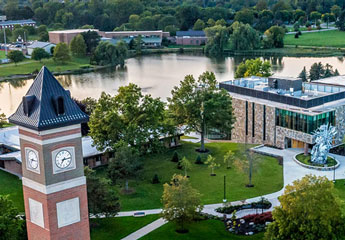
If you have researched colleges, you have probably seen standard universities and liberal arts colleges, but what is the difference and why does it matter? Well, this could be an important factor in decision making! Cornerstone University is a liberal arts college, and today, we are going to explore what that really means.
WHAT IS THE DIFFERENCE?
According to Dr. Jeremy Osborn, associate professor of communication at Cornerstone, “Colleges and universities that identify themselves as liberal arts colleges typically require students to take classes from a variety of disciplines and to engage with a range of ideas and ways of thinking about the world.”
Dr. Osborn has spoken many times on the topic of liberal arts in CU classes, and he is passionate about the value of liberal arts education.
Compared to a liberal arts school, a standard university is typically more direct in its approach to teaching. You follow a more set path for your courses, meaning even general education courses (also called gen eds) are more strictly tied to major-specific topics.
“Schools without a liberal arts focus are more likely to train students to be vocational specialists in a narrow range of areas, focusing more credits and course work on teaching the current knowledge and skills for a particular profession,” said Osborn.
A liberal arts college provides students a more flexible and well-rounded experience, which can be extremely beneficial in learning broad, adaptable skillsets and creative thinking skills that translate across different career fields.
“That typically involves exposing students to a range of subjects including the humanities, arts, natural sciences and the social sciences,” said Osborn.
At a liberal arts college, students are able to build a wider knowledge base through their gen eds. They are able and encouraged to take a multitude of classes in various academic areas so they can learn to approach tasks and problems from multiple perspectives, rather than only progressing in a single area of study.
MY EXPERIENCE WITH LIBERAL ARTS
I am a psychology major, and I have known for a long time that I have wanted to go into psychology with a focus on counseling. However, taking courses outside my required psychology track has taught me a lot and piqued my interest in aspects of psychology I hadn’t initially thought of.
My time in communication courses made me think about how exciting it would be to speak publicly on psychological topics and experiences or lecture on them in a classroom. While I still intend to pursue counseling, the experience opened me up to a new interest and a new way of approaching something I am already passionate about. This is only one example, but it shows how I have found value in learning through a liberal arts approach to my college education.
With more knowledge of different areas, students really do get a well-rounded experience. However, this does not mean that liberal arts colleges lack focus on areas of a student’s main field of study. Specialized skills are still acquired through liberal arts schools and make up a lot of the course work for upperclassmen as they get closer to graduation.
I am a junior now, and almost all of my gen eds are done, so four out of my five classes this past semester were in the psychology department. I gained a wide foundation of knowledge my first two years at CU and have now moved on to honing my specialized skills.
It is also fair to say that classes build on each other. I also had a few classes last semester that overlapped on topics. One of the courses was a gen ed and one was a higher level psychology class. Because of the overlap, I was actually able to relate the topics to each other, gain broader knowledge of the topic and understand the concepts better.
BENEFITS IN CHOOSING A MAJOR
There is a large percentage of students that change their majors while in college.
“Research suggests that while still in school, somewhere between 33-80% of students will change majors at least once,” Osborn noted. “It is often through liberal arts, core curriculum courses that they discover their true passions and interests.”
There are also a multitude of students who do not know what they want to major in when they first apply to college. If you’re one of these students, experiencing a wide variety of courses early on can help you narrow down your options. Perhaps you come with an idea of what you want to do, but after taking your gen eds, you feel called to a different area. You would not get that experience focusing so strictly on one area. Or, if you have no idea what you want to do, you get a chance to experience many fields before you make a decision.
Learning at a liberal arts college is dynamic, allowing each student to dabble in different studies and find their niche.
HOW LIBERAL ARTS PREPARES YOU FOR A CAREER
Just like how learning is dynamic, jobs are rarely stagnant. Often you are required to have knowledge of other areas. Unless you are seeking a career in trades, such as being a welder or electrician, it is unlikely that you will have a job where exceedingly specialized skills are used. Having background knowledge in various areas allows you to draw on a broader pool of information related to multiple subjects and be more flexible in how you approach your job.
For example, counselors require a basic knowledge of psychology and research but also need to have interpersonal skills so clients feel safe enough to share very personal information during sessions. A teacher must know the best teaching techniques, have expert knowledge of their chosen subject and the communication skills to connect with students as well as students’ guardians.
“Employers in many sectors are looking to hire individuals with a more diverse employment history and demonstrated aptitude in what we might call transferable, or transdisciplinary, skills,” Osborn said.
Learning these skills in college will help prepare you for different areas of work and life, alongside the specialized skills you pursue.
A liberal arts college is something to consider if you are scouting universities. To learn more about what it is like to attend a Christian liberal arts college, plan a visit.








